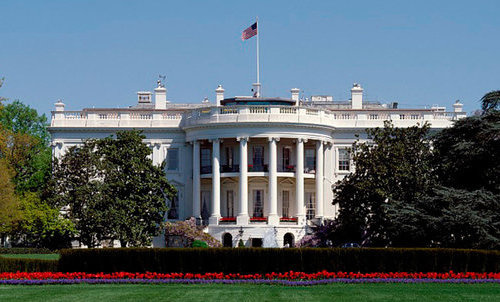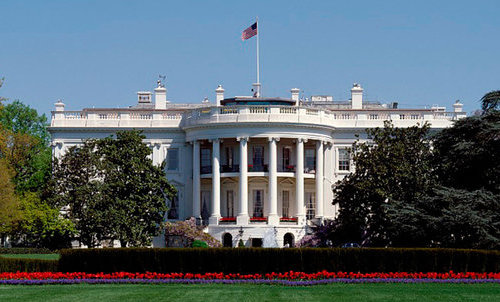The Unitarian Universalist Service Committee advances human rights through grassroots collaborations.
Economic Justice Under a Trump Administration

By on January 23, 2017
In this 2017 inauguration series, UUSC will reflect on how the incoming administration’s actions will likely impact our focus areas: economic justice, rights at risk, and climate change. The first of this series will take a look at the role of the economy in justifying Trump’s rhetoric and campaign promises.

The famous quip “It’s the economy, stupid,” coined by former President Bill Clinton advisor James Carville, can be just as helpful in understanding Trump’s rhetoric, as it was in understanding Clinton’s win in 1992. Many of the Trump campaign’s promises, proposed policies, and much of its inflammatory rhetoric drew upon a particular view of the economy. In fact, it seems that Donald Trump’s claims about the economy were instrumental in both propelling him to victory as well as providing the justification for his more hateful campaign promises and rhetoric.
One need look no further than Trump’s stance on immigration to find a clear example of relationship between his promises and his view of the economy. From day one of his campaign, Trump made it clear that a hostile stance towards immigration, including ramping up deportations, would become a core tenet of his platform.
Trump’s vision for immigration, as laid out on his campaign website, is comprised of three points, all of which relate to the economy. And, although much of his 10-point plan for immigration revolves around national security, two points in the 10-point plan relate to the link between immigrant workers and a lack of jobs for American citizens. Of course, all of this completely neglects the anticipated damage that his deportation plans would do to the U.S. economy, and the fact that the evidence suggests that immigrants not only contribute to the economy, but also aren’t really taking jobs from Americans. While some of his views on immigration are couched in terms of national security, there is no denying the links Trump draws between immigration and the state of the economy
However, the impact of Trump’s economic view are not limited to immigration. For example when it comes to climate change, undoubtedly the most pressing issue facing the world today, Trump’s position is heavy in its emphasis on jobs. As he promised in state after state on the campaign trail, he wants to bring back jobs in the coal industry; repeal environmental regulations on oil, natural gas, and fracking; and as a result, he will “unleash America’s energy potential.” Conspicuous in its absence on the issue is any reference to the climate change at all. Once again referring to his campaign website, Trump has a policy position on the issue of “Energy” (read, repealing regulations) but does not have a policy position on climate change.
What does all of this mean? Well, as many have pointed out, Trump has framed himself as a friend of the blue-collar worker, those who are out of work, and those who feel forgotten all while providing a convenient scapegoat: immigrants and regulations. With this in mind, his cabinet choices are troubling.
Secretary of State nominee and former CEO of Exxon Mobile, Rex Tillerson, for example, headed a company that sought to deny the impacts of climate change, even while its own research showed the dangers. Andrew Puzder, the former CEO of CKE Restaurants which owns Carl’s Jr. and Hardee’s, and Trump’s nominee for Labor Secretary, mused on the benefits of automating labor in his restaurants. In his own words: “[machines are] always polite, they always upsell, they never take a vacation, they never show up late, there’s never a slip-and-fall, or an age, sex, or race discrimination case.”
Worker-led movements and organizing will undoubtedly be critical in challenging Trump’s distorted and divisive views of the economy.
Given Trump’s views of the economy, it is as important now as ever to stand with workers around the country to ensure that their human rights are respected and that Trump’s views of the economy do not become the justification for the harassment of immigrants and low-income workers, or the degradation of the environment. Worker-led movements and organizing will undoubtedly be critical in challenging Trump’s distorted and divisive views of the economy.
So, as Trump assembles not only the wealthiest cabinet in modern history, but also the whitest and most male cabinet since Ronald Reagan, it is time to come together and find our moral courage to stand up for the human rights of all Americans, and to remember that, while Trump frames his economic narrative in terms of “us vs. them”, the only way we can truly achieve a more inclusive and just economy is by coming together under a shared vision of human rights.
In response to concerns about how the Trump administration is likely to proceed, UUSC has joined with the Unitarian Universalist Association on an unprecedented course of action to align ourselves together, united in purpose to protect the values of our democracy and those vulnerable populations among us.
As a first step, we have prepared a Declaration of Conscience stating in the strongest possible terms our commitment in these troubling times. By signing the declaration, you join us in affirming our core values and declaring our willingness to put them into action. We encourage you to read the full declaration here, and add your name.